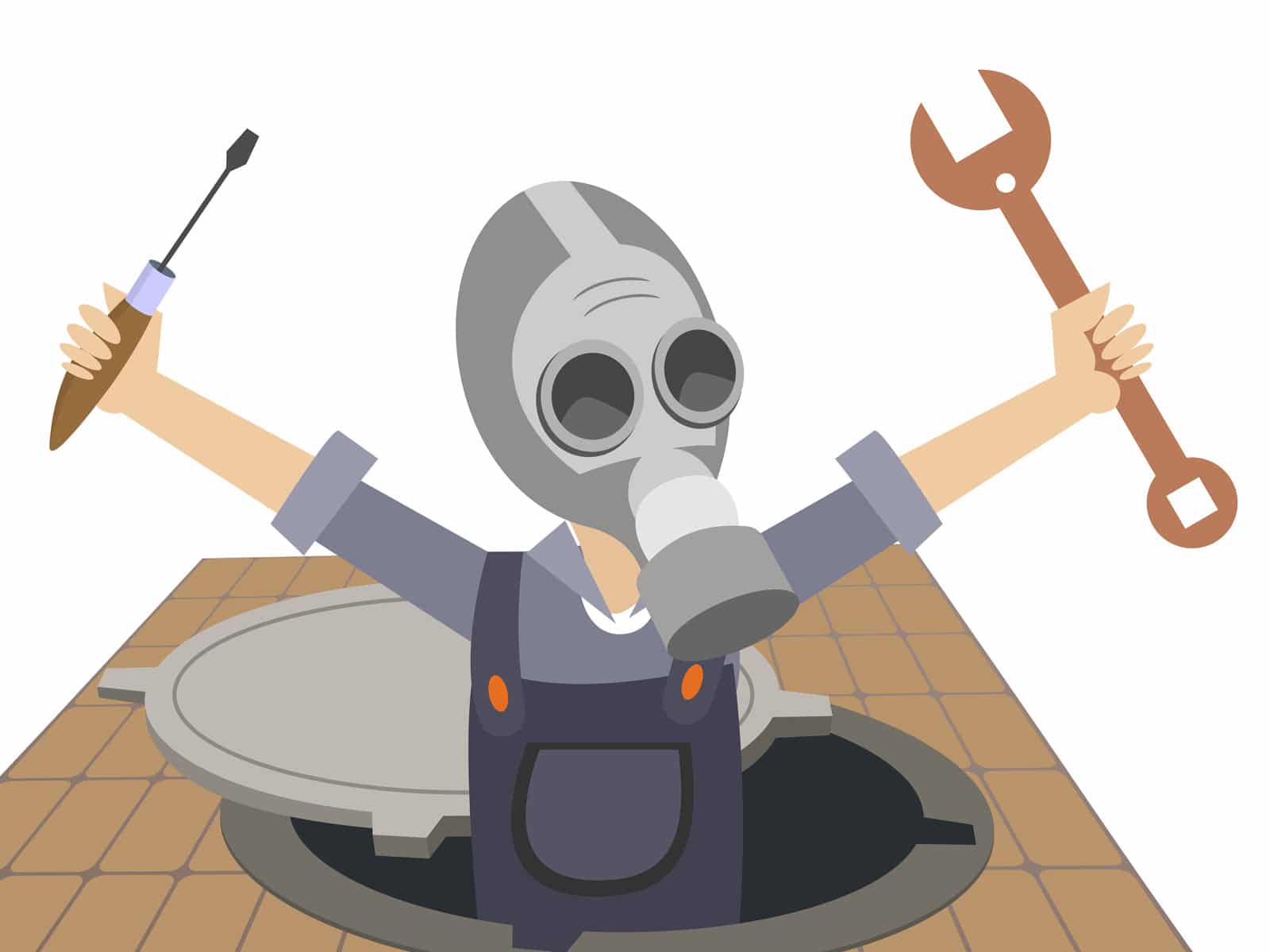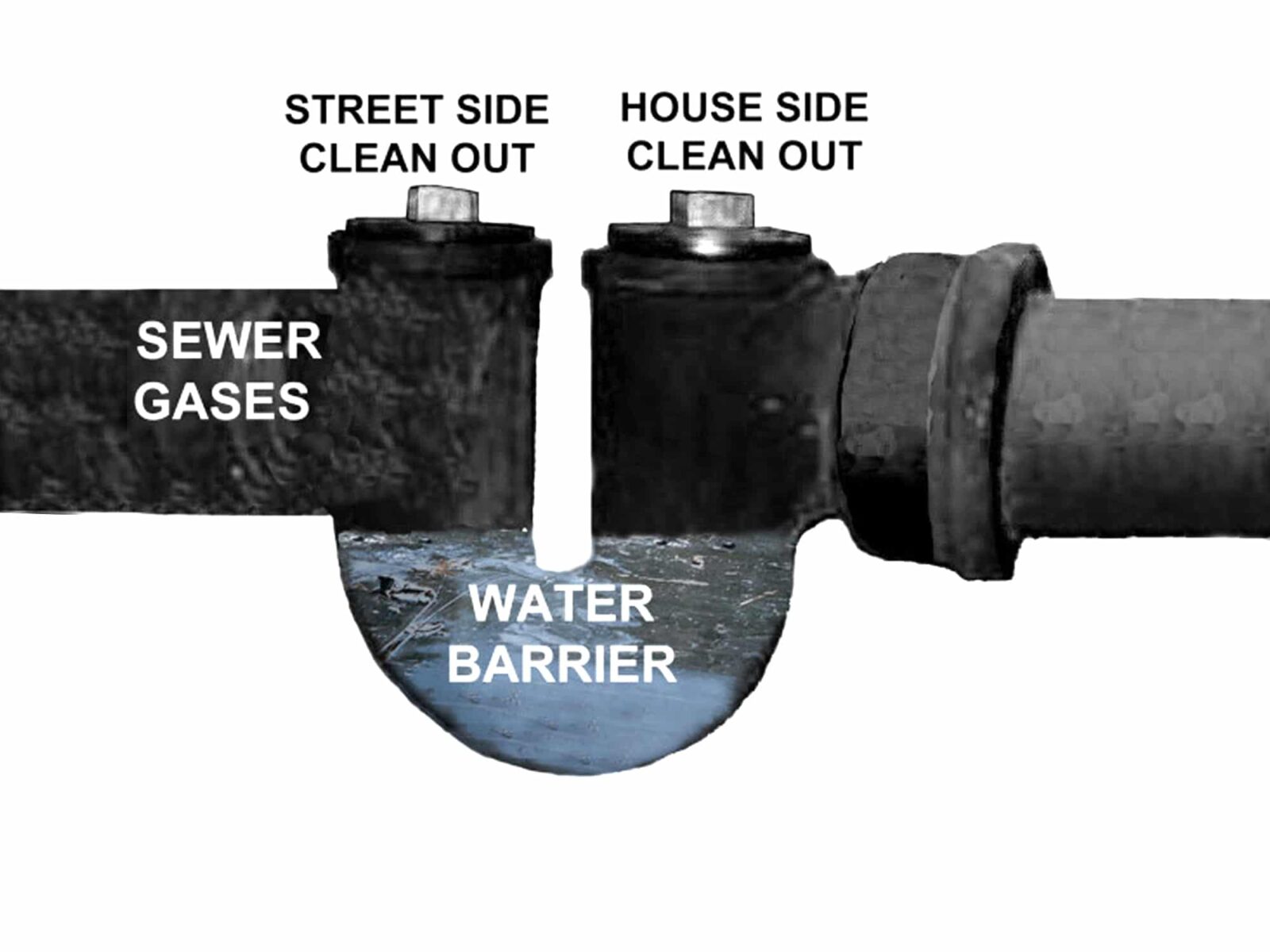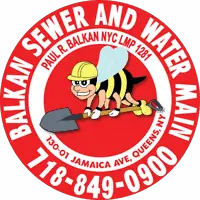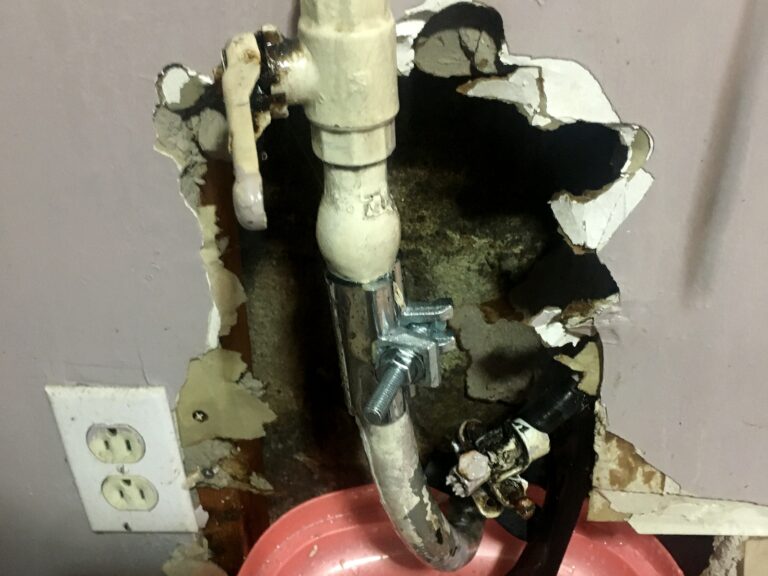Yes, sewer gas smells are awful. They are actually a combination of ammonia, hydrogen sulfide, methane, and other chemicals. Even when sewer gas is taken in at low levels, it can lead to dizziness, eye irritation, and a cough. Higher levels of sewer gas are very dangerous, and they can pose health risks. In some cases, sewer gas can result in fires, explosions, and even death by asphyxiation. So not only is sewer gas an annoyance, it is outright dangerous.

6 Key Points About Sewer Gas Smells In A Residential Home
In a residential home, the foul sewer smell may exist at low levels. It can become present if there is a plumbing problem. When a home’s plumbing system is working properly, the hydrogen sulfide is directed up and out through a vent system typically above your roof. By exiting through the roof, it does not leave behind that unique and unforgettable smell.
If you believe your home or business may be experiencing a sewer gas leak, take immediate action. It is important to reach out to a professional immediately. This is one repair that should not be put on hold, or left for a prolonged investigation. To help you determine if you have a major problem on your hands, we recently sat down with David Balkan to talk about sewer gas smells.
David has become an expert over the years. He has worked proudly to help homeowners and business owners diagnose the source of a source gas smell. Many times a thorough test to find the exact issue causing the gas smell is not needed.
We asked some Frequently Asked Questions(FAQs) about sewer gas smells. In this way, you can learn how to tell if your home or business might have a leak and how it can be fixed immediately.
1. The Typical Causes Of Sewer Gas Smells
Homeowner Question: David, can you tell us what can cause sewer smells?
David: When you smell sewer gas in your sink or drain, it can mean there is a blockage in the drain pipes in the wall or the vent. If there is a clog from either of these, the water has no place to go without first forcing the air out of your piping. Eventually, there will not be enough water to block the sewer gas from escaping.
There are common causes of sewer smell in a home such as leaking pipes, clogged drains, blocked air vents, and cracked sewer pipes. However, the most common cause of a sewer gas smell in your home is a dried out trap. In other cases, the common cause is a trap cover not on tightly enough.

2. Is A Lingering Sulfur Smell Is Something To Be Wary Of
Homeowner Question: Can you give us more information about what sewer gas smells like?
David: Sure thing. Sewer gas has a very distinct odor. Such as the distinct odor of gasoline. When you smell gasoline, you can easily detect what that smell is and what it is generally associated with. Sewer gas gives off an odor that is similar to the smell of a rotten egg (sulfur).
A sewer gas smell is heavily attributed to the mixture of gases that come together to create the rotten egg smell. In small levels, the sewer gas dangers and risks are minimal. However, things can become very troublesome and dangerous when the levels increase.
3. Can Sewer Gas Smells Make You Sick?
Homeowner Question: So, are you saying sewer gas can make you sick?
David: Yes, sewer gas can make you sick. This is why taking any unusual smell from your home or sewer seriously is so important. It is also important to know how to identify the symptoms of sewer gas exposure. Some sewer gases do not have an odor, or they can cause damage to your sense of smell.
Hydrogen sulfide is the primary gas found in sewer gas. It can be very toxic in large quantities. Symptoms of this type of gas can include organ damage and in some cases death. Ammonia is also a gas that makes up sewer gas. If you are exposed to high levels of ammonia, it can damage several parts of your body, including your eyes and your respiratory tract.
Interviewer: Can someone be treated for sewer gas exposure?
David: If anyone has been exposed to sewer gas, protection is important. Medical attention should be received right away for any symptoms that are being experienced.
4. How Do You Locate The Source Of A Sewer Gas Smell?
Homeowner Question: How can someone locate the source of the sewer gas smell?
David: Good question. This is one of the trickiest steps that homeowners or business owners will take. Finding out the source of the smell can be a challenge. Depending on how many plumbing fixtures are connected to your drain lines, this may take some work.
One should never rule out a particular spot, because there could be several leaks in the plumbing system. If the odors are noted inside your home, you can attempt to track the smell to a room in the house. You can also track it to one of the plumbing fixtures or drains. We sometimes discover that odors are traced to a plumbing drain that has been leaking, a loose toilet, or a plumbing vent that has not been connected properly.
But the most common culprit is a plumbing fixture that has not been used in quite a while. In these cases, the water barrier inside the trap has probably dried out. If this is the case, the solution isoh-so easy. Just pour water down the drain, and the trap will fill again with water. This seems to happen a lot in seasonal homes, or portions of one’s home that are not frequently used .
5. How Do You Get Rid Of A Sewer Gas Smell?
Homeowner Question: How can someone get rid of the sewer gas smell?
David: Sewer gas can be a tough odor to get rid of. That is especially true if you are not sure what you are doing. I know how easy it is to use air fresheners or candles to try to get rid of the smell. These tricks will only mask the smell, and not cure the actual issue.
There are ways to get rid of the smell for good. Some of the measures we take are checking for leaks, checking the toilet wax ring, cleaning the sink overflow, cleaning out existing bacteria growth in drains, checking drains and fixtures that are not used as often as others, and performing a video drain inspection.
Homeowner Question: Are there any preventative measures that can be taken?
David: You may not be able to stop tree roots from going through your sewer lines, or other physical sewer defects. However, you can take some preventative measures to reduce your chances of experiencing a sewer gas problem. When you know where all the plumbing traps are in your home, you can make sure all traps keep their water level, especially the traps that are not used as often. Water should be kept in all the traps.
Your drains should also be cleaned out. It is very easy for dirt and debris to get trapped in your drains, but it can be difficult to get them out. We also recommend making sure your vent stack does not have any dirt or debris.
6. Who To Call When A Sewer Or Drain Professional Is Needed
Homeowner Question: As a homeowner or business owner, if I need help getting rid of a sewer gas smell, can I contact Balkan Sewer And Water Main?
David: Yes, they can. Our experienced technicians are skilled in solving plumbing and sewer problems of all types. We will quickly diagnose the problem and provide sound and structured solutions. We can typically solve the sewer odor issue quickly and inexpensively. This is regardless of whether this is a first-time issue or an ongoing problem. In most cases, the sewer problem is solved on the very first visit.
Interviewer: How can someone contact a member of Team Balkan?
David: We have experienced customer service experts who are available 7 days a week, and after-hours as well. Team Balkan can be reached at (718) 849-0900 or via our website inquiry form.
If you think you have a sewer gas leak or another serious plumbing problem, call the skilled and experienced technicians at Balkan Sewer and Water Main Service.






